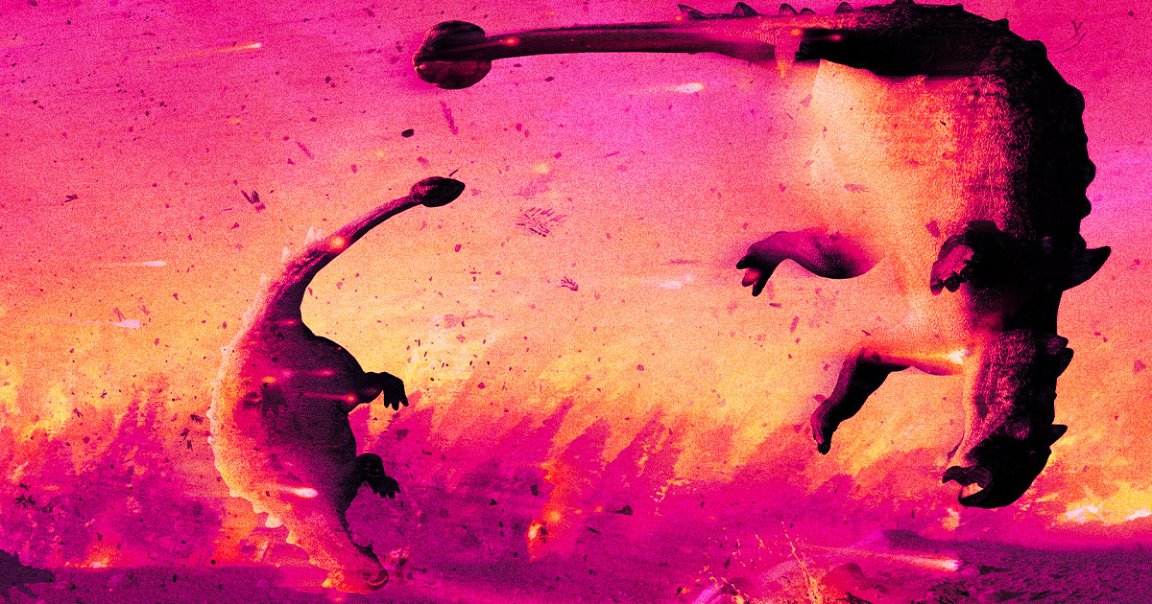
Apocalypse Then
Scientific consensus has coalesced around the notion that a killer asteroid, measuring about nine miles in width, slammed into what is now the Gulf of Mexico around 66 million years ago and basically put a brutal end to the reign of dinosaurs on Earth.
But what if the asteroid, now called Chicxulub, was just a killing blow in a slow-motion climate disaster that had already consigned dinosaurs to the dustbins of history? For quite some time, scientists have been exploring the hypothesis that massive volcanoes around that era were actually what caused the mass extinction.
Further cementing that hypothesis, a team of scientists in North America and Europe published a new paper in the journal Science Advances that suggests that volcanic eruptions in India spewed so much sulfur into the atmosphere that it indeed caused biome-shifting global drops in temperature.
These episodes, which happened before Chicxulub reared its ugly head, were short in duration but were perhaps enough to mess up ecosystems all over the world, they said.
Death Trap
The scientists focused on the Deccan Traps in western India, an area in the subcontinent characterized by rocky plateaus made from solidified molten lava from ancient volcanic eruptions. By studying the lava piles and performing calculations, they were able to determine that volcanic activity soon before Chicxulub struck Earth was spitting out large amounts of sulfur — so much sulfur that it was deeply stressing the environment.
“Deccan Traps volcanism set the stage for a global biotic crisis, repeatedly deteriorating environmental conditions by forcing recurring short volcanic winters,” the scientists wrote.
“This instability would have made life difficult for all plants and animals and set the stage for the dinosaur extinction event,” said study co-author and McGill University professor Don Baker in a statement. “Thus our work helps explain this significant extinction event that led to the rise of mammals and the evolution of our species.”
The idea that intense volcanic activity was a major cause behind the mass death of dinosaurs paints a more complex picture of the time period. Perhaps the asteroid was just the apocalyptic cherry on the sundae.
More on dinosaurs: Terrifying T-rex Actually Had Big, Luscious Lips, Scientists Say